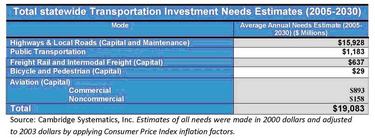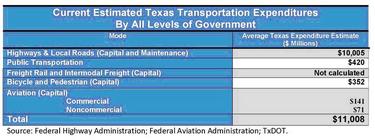
PIT BULLS ON THE TURNPIKE
July 14, 2009
Despite Rick Perry's pledge to stop diversions, the 81st Legislature put an end to only $5 million out of $2.9 billion in biennial diversions. So what's the answer? The real answer in Texas is real leadership, prepared to pay for 21st century infrastructure in a state soon to reach 50 million inhabitants.
Written by Senator Eliot Shapleigh, www.shapleigh.org
On July 1st, Governor Rick Perry called a Special Session to deal with TxDOT. What's the real issue here?
The real issue is "Pit Bulls on the Turnpike." TxDOT is another state agency so starved for funds that it can't do its job. Let's look at the facts.
Right after World War II, with 12 million men and women home from war and looking for work, President Franklin Roosevelt appointed a National Highway Committee to develop plans for a national system of expressways. Congress designated the 40,000-mile National System of Interstate Highways in 1944, but it was not funded until President Dwight Eisenhower made it a cornerstone of his domestic agenda in 1956.
After more than 50 years, Eisenhower’s plan has become the most successful public works project in our nation's history. With over 42,000 miles built, at a cost of $128.9 billion, the interstate highway system provided the infrastructure for the movement of people and products that fuels our economy today. Gas tax at the pump paid for highways from ports to plains.
In Texas, 77,000 miles of state and federal highways have been constructed since the Texas Highway Department was created in 1917. Our road and bridge system was once described as the crown jewel of the 50 states. But after fifteen long years of Grover Norquist-style leadership, Texas highways are now a mess. Norquist is a Bush era lobbyist who infamously said, "our goal over the next 25 years is to shrink government to the size where we can drown it in a bathtub."
Nearly a quarter of a century ago, a handful of Texas lawmakers embraced this philosophy, calling themselves the “Pit Bulls." They set out to cut taxes for the wealthy, and then cut budgets for Texas. One key mantra of the Pit Bulls was to privatize whatever government function or service possible. Years later, dozens of House members signed the Norquist pledge to “never raise taxes.” Two of these Pit Bulls were Rick Perry and the late TxDOT Commission Chairman, Rick Williamson.
Today, years after the Pit Bulls first pledged to "drown" government, the Texas highway system is itself under water.
In a recent report, titled "Moving Texas to the 21st Century," Cambridge Systematics, a leading U.S. consulting group on infrastructure, reported that Texas highway funds are at least $8 billion short each year from meeting the basic needs of a growing state.
Here below, in Chart 1, you can see how much Texas needs to spend to build the transportation and infrastructure we need:
Chart 1
Click here to view larger image.
Chart 2 shows how much money we actually have:
Chart 2
Click here to view larger image.
With Texas set to grow up to 49 million inhabitants by 2050, we are $256 billion short of meeting mobility needs, or $8 billion each year. Remember, basic infrastructure is the key to a competitive economy—without the ability to move people and products, manufacturers and others will go to states and countries that can.
What happened here? Diversions happened. Grover’s disciples diverted highway money to pay for other budget needs. Approximately $2.9 billion of gas tax money designated for roads is diverted every biennium to pay for “other services.” For example, $1.144 billion goes to fund the Department of Public Safety, and another 25% of the gas tax goes to pay for public schools. Another $100 million goes toward buying helicopters and other equipment to patrol border counties, and even the Commission of the Arts gets $1.34 million. Over 10 years, more than $11.2 billion has been diverted from the highway fund to pay for other things.
Shackled by their no-new tax pledge, Norquist’s Pit Bulls rob from Peter to pay Paul. Without courage to identify clear needs, raise revenues and fund the basic needs of a growing state, they simply rearrange the deck chairs using existing revenues. And that’s why Texas highways are in Grover’s tub today.
Under the budget passed by the 81st legislature, TxDOT will receive $270 million for new construction in 2010 and $590 million in 2011. With S.B. 1 passed during the first called Special Session of the 81st Legislature, TxDOT will receive an additional $250 million for new construction in 2010 and $600 million in 2011. Even with this additional amount, TxDOT will run out of money for new construction by the end of 2012. In addition, gas tax revenues through June 2009 are down 2.6 percent from the year before. Inflation from higher concrete and steel caused highway construction costs to rise 60 percent between 2002 and 2007. What about Federal revenues? From 1994 to 2005, Texas has only increased state funding for Texas highways by 20% while the federal government has increased federal funding for Texas highways by 184% during the same timeframe.
Despite Rick Perry’s pledge to stop diversions, the 81st Legislature put an end to only $365 million out of $2.9 billion in biennial diversions. However, as letters from the Executive Director of TxDOT indicate, almost all of these funds must be used to plug the budget gap in the State Highway Fund ($75 million) and offset the reduction in general revenue for TxDOT for debt service ($285 million). As a result, only $5 million of the $365 million will be available to TxDOT over the course of the biennium.
So what's the answer? Several bills, including S.B. 855, build highways the old fashioned way? -pay as you go- with voter approval. Sadly, those bills died last session. The real answer in Texas is real leadership, prepared to pay for 21st century infrastructure in a state soon to reach 50 million inhabitants.
For Texans, not moving forward is not an option.
- End -

